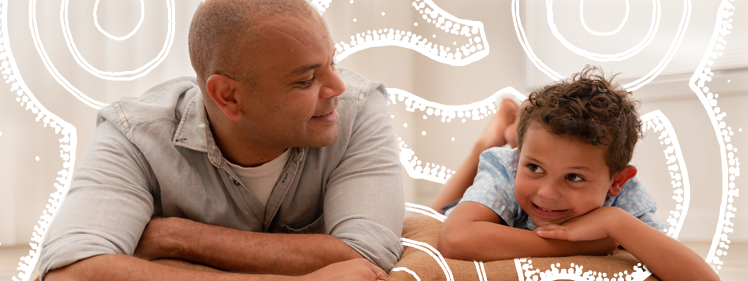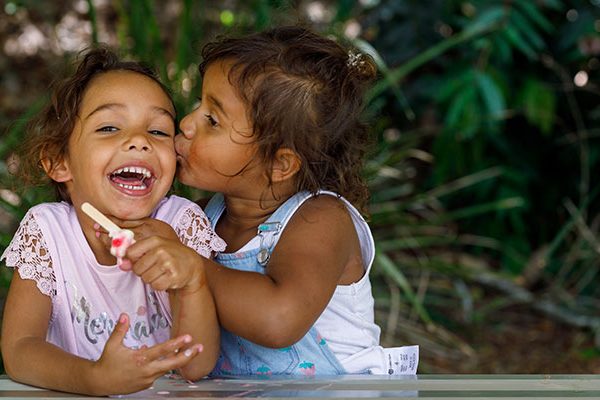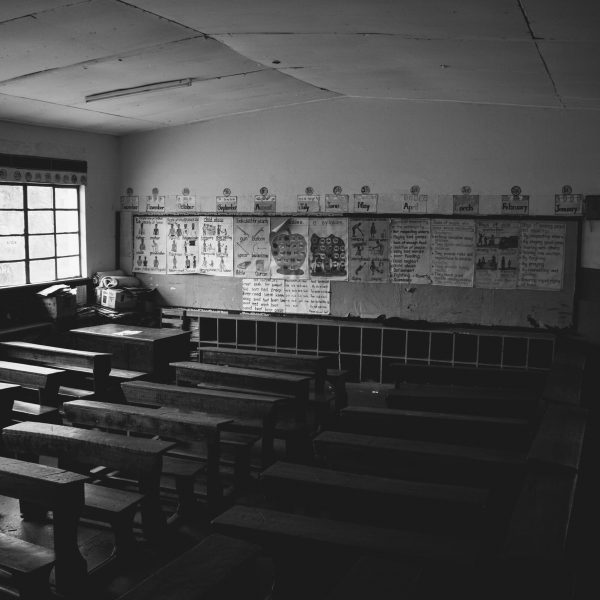HAPEE program helps over 8,000 First Nations children with hearing

Hearing Australia, with the support of Aboriginal and Torres Strait Islander health services across Australia, has helped over 8,000 First Nations children aged between birth and six years of age in some 240 communities during the past 12 months.
Through the Hearing Assessment Program – Early Ears (HAPEE program) initiative, Hearing Australia is collaborating with Aboriginal and Torres Strait Islander peak bodies, Ear Health Coordinators and other key ear health stakeholders, to address the high rates of ear disease and hearing loss in First Nations children.
The HAPEE program is a result of a $30 million investment by the Australian Government to reduce ear disease in Aboriginal and Torres Strait Islander children and focuses on children who are not enrolled in primary school.
So far, 76 Aboriginal Community Controlled Health Services have signed up to support the delivery of the HAPEE program in their communities, Hearing Australia Managing Director Mr Kim Terrel said.
“The HAPEE program was developed with Aboriginal Community Controlled Health Organisations, the Department of Health, key people from the Aboriginal and Torres Strait Islander hearing health sector and Hearing Australia. The HAPEE program is run on a national basis and links with existing community programs,” he explained.
“This is a key priority for Hearing Australia given that over the past 12 months, some 30 per cent of children assessed by our audiologists had undiagnosed middle ear infections, while some 25 per cent had some form of undiagnosed hearing loss and were placed into specialist referral pathways.”
Having Aboriginal and Torres Strait Islander team members on HAPEE is key to the long-term success of the initiative, Hearing Australia’s Lose Fonua explained.
“This program will assist communities to have the confidence and capability to assess children for hearing health issues and provide early intervention for otitis media,” she outlined. “It aims to reduce the rates of preventable hearing loss in Aboriginal and Torres Strait Islander children, closing the gap in health outcomes for this community and leading to positive changes into the future.”
Proud Torres Strait Islander woman, Denise Newman from Hearing Australia, is a HAPEE Community Engagement Officer and she uses her cultural insights to help engage her local community with HAPEE.
“The response to HAPEE from the community is amazing,” she shared. “People understand the importance of health workers and carers being upskilled to identify hearing loss issues in children and then learning how to refer them to HAPEE. What’s really important is that staff education is maintained and kept consistent so there are no gaps in the hearing help our kids receive.”
As well as providing diagnostic hearing assessments for young children, HAPEE equips local primary care providers, early education staff and parents and carers with the knowledge to identify ear disease and hearing loss in young children.
To support Aboriginal and Torres Strait Islander communities, Hearing Australia has developed a new resource kit for organisations, primary health services and early child education workers to share training, key messages and the benefits of the program to parents and carers.
Resources can be downloaded for free from the Hearing Australia website at www.hearing.com.au/HAPEE/Information-and-Resources
Popular

Quality
Practice
Provider
Research
ECEC in focus - Una Springwood’s intergenerational initiative brings young and old together through connection and care
2025-06-30 10:00:45
by Contributed Content

Provider
Practice
Quality
Research
Aboriginal Education Strategy drives early learning and school success in South Australia
2025-07-01 09:55:12
by Fiona Alston

Workforce
Policy
Quality
Research
Inclusive Practice Framework set to strengthen inclusion in early childhood settings
2025-06-24 11:37:00
by Isabella Southwell












